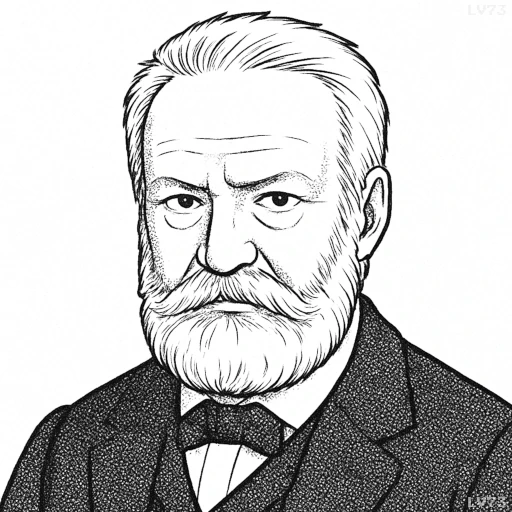“The ideal and the beautiful are identical; the ideal corresponds to the idea, and beauty to form; hence idea and substance are cognate.”

- February 26, 1802 – May 22, 1885
- Born in France
- Author, poet, playwright
table of contents
Quote
“The ideal and the beautiful are identical; the ideal corresponds to the idea, and beauty to form; hence idea and substance are cognate.”
Explanation
In this quote, Victor Hugo explores the deep connection between beauty and the ideal, suggesting that they are not separate concepts but are intrinsically linked. Hugo argues that the ideal represents a vision or concept, something abstract and perfect in nature, while beauty corresponds to the form—the tangible, visible manifestation of that ideal. The ideal is realized in the world through beauty, and beauty, in turn, is an expression of the ideal. Therefore, the idea (the concept of perfection) and the substance (the form that embodies it) are closely related and share a fundamental connection.
This perspective reflects Hugo’s belief in the unity of thought and expression. The ideal is not just a theoretical or intellectual notion, but something that can be seen and appreciated in the beauty of the world around us. For Hugo, the beautiful is not just about outward appearance, but about the expression of higher ideals, whether in art, nature, or human behavior. Beauty is a reflection of the perfect vision of what could be, making it a physical realization of the ideal.
In modern terms, this quote speaks to the idea that beauty is not merely superficial but carries deeper significance. It suggests that true beauty is always a reflection of something more profound—values, ideals, or ideas that give it meaning. Whether in art, nature, or even in human relationships, beauty serves as a way to express the perfect or ideal, and we can appreciate beauty more deeply when we recognize the ideals it represents. Hugo’s words encourage us to seek out and value the deeper connections between form and substance, between beauty and the ideal.
Would you like to share your impressions or related stories about this quote in the comments section?


